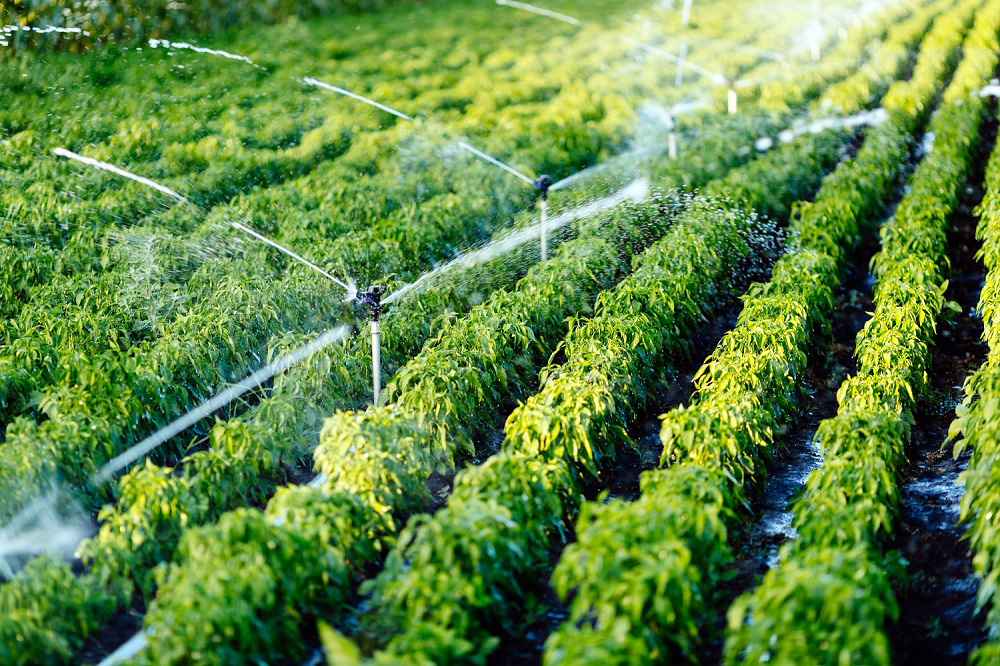These solutions provide a smart system that supports decision-making, optimizes infrastructure control and field work monitoring, thanks to data integration and the use of advanced algorithms
Irrigated agriculture is the world’ s largest consumer of water, accounting for 70% of water withdrawals and 90% of total consumption according to the FAO. There is a pressing need to reduce this figure, and digital technology is the key to achieving this goal
Idrica has developed a new digital solution for end-to-end management of agricultural irrigation infrastructures and networks. The multinational, with an extensive track record in the digital transformation of drinking water and sanitation infrastructures, is now transferring its know-how to the agricultural sector with the GoAigua Agro Twin module, which centralizes the main elements of agricultural irrigation management.
This solution, which has already been successfully deployed in Spain and Qatar, is based on Big Data and data analytics techniques, and provides a smart system that supports decision-making, optimizing infrastructure control and field work monitoring.
Given the importance of energy and operational efficiency today, Idrica‘s smart solution brings process and infrastructure information together in a single model that facilitates data acquisition, processing and standardization, providing specific technological solutions for irrigation, and centrally displaying key indicators.
The key to this project was to build an artificial intelligence algorithm for irrigation. This was developed in conjunction with Agrow Analytics, a company backed by GoHub Ventures, Global Omnium’s investment fund.
The use of this data-integrated algorithm facilitates real-time control and monitoring of assets, improves decision-making, optimizes irrigation schedules, and provides early detection of leaks, fraud, and consumption that exceeds the established allocations. Along with comprehensive work order management, GoAigua Agro Twin boosts operational results and records interactions with irrigation associations through an online office and mobile application.
This technology can also program irrigation, pumping and fertilizer systems from the control center. It can also analyze soil water status and optimize crop water consumption; manage the network of meters, devices, communications, asset energy consumption and set up customized alarms that can be configured by the user. It also facilitates real-time data visualization, including the creation of dashboards and management indicators, and provides advanced water efficiency management, both in the distribution network and at the supply points.
Digital sustainability crucial for the sector in the coming years
Irrigated agriculture is the world’s largest consumer of water, accounting for 70% of water withdrawals and 90% of water consumption, according to the FAO. Today, Latin America grows 18.4% of the world’s agricultural crops, according to this agency. This is why it is key to find sustainable solutions that foster efficient water resource management, bring environmental and digital sustainability, are valid for longer, and include a level of service adapted to the needs and digital and financial capabilities of each user.
According to Idrica’s Business Development Director, Chema Nebot, “over the next few years we will see the agricultural sector taking digital transformation on board. Process automation and advanced algorithms will be two of the key components to guarantee the sustainability of this sector in a context of water scarcity and a huge increase in the amount of irrigated land”. This all comes at a time when the use of new technologies in farming is being pushed hard, as shown by the number of government schemes launched around the world.
International expansion
The increase in technological developments for the water cycle will enable Idrica to break into new markets as part of its international expansion plan. In 2021, the Spanish firm opened five new subsidiaries in Hong Kong, Chile, Canada, Brazil and Saudi Arabia, adding to those in the USA, Mexico, Colombia, Ecuador, Peru, Qatar and Romania that had been set up in 2020. In just two years, the Spanish-based multinational has established operations in 14 countries in Europe, North America, the Middle East, Asia, Africa and Latin America.
Read more Idrica Articles and News on H2O Global News. Do you have an article or video that you would like to share? Submit your article here or keep up with the latest news from the water industry and wastewater industry by subscribing to our weekly newsletter







